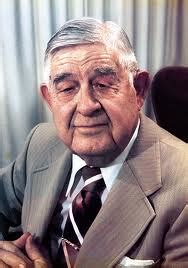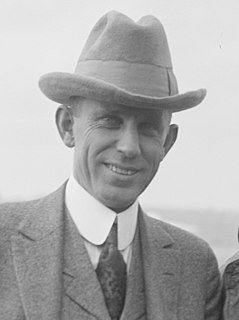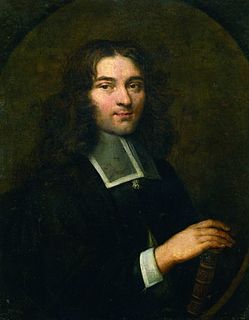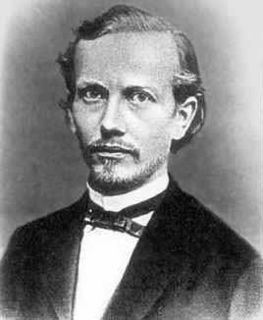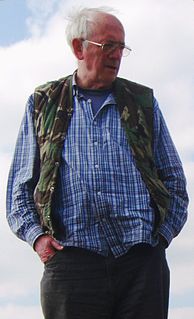A Quote by Willard Van Orman Quine
Just as the introduction of the irrational numbers ... is a convenient myth [which] simplifies the laws of arithmetic ... so physical objects are postulated entities which round out and simplify our account of the flux of existence... The conceptional scheme of physical objects is [likewise] a convenient myth, simpler than the literal truth and yet containing that literal truth as a scattered part.
Related Quotes
Physical objects are conceptually imported into the situation as convenient intermediaries not by definition in terms of experience, but simply as irreducible posits comparable, epistemologically, to the gods of Homer . . . For my part I do, qua lay physicist, believe in physical objects and not in Homer's gods; and I consider it a scientific error to believe otherwise. But in point of epistemological footing, the physical objects and the gods differ only in degree and not in kind. Both sorts of entities enter our conceptions only as cultural posits.
A thought has no size in the physical sense but is vast as compared to the physical acts and objects into which it is later precipitated. The power of a thought is enormous and superior to all the successive physical acts, objects, and events that body forth its energy. A thought often endures for a time much greater than the whole life of the man who thought it.
There's one uneasy borderline between what is external and what is internal, and this borderline is defined exactly by the sense organs and the skin and the introduction of external things within my own body. Consciousness is altered by physical events and physical objects, which impinge upon my sense organs, or which I introduce into my body. Now the name traditionally given to external objects or processes which change you internally is sacrament. Sacraments are the visible and tangible techniques for bringing you close to your own divinity.
Whenever you find a preacher who takes the Bible allegorically and figuratively...that preacher is preaching an allegorical gospel which is no gospel. I thank God for a literal Christ, for a literal salvation. There is literal sorrow, literal death, literal Hell, and, thank God, there is a literal Heaven.
Pinball games were constrained by physical limitations, ultimately by the physical laws that govern the motion of a small metal ball. The video world knows no such bounds. Objects fly, spin, accelerate, change shape and color, disappear and reappear. Their behavior, like the behavior of anything created by a computer program, is limited only by the programmer's imagination. The objects in a video game are representations of objects. And a representation of a ball, unlike a real one, never need obey the laws of gravity unless its programmer wants it to.
Compulsion in the literal Sense is maliciously misrepresented, by supposing it authorizes Violences committed against the Truth. The Answer to this; by which it is prov'd, that the literal Sense does in reality authorize the stirring up Persecutions against the Cause of Truth, and that an erroneous Conscience has the same Rights as an enlighten'd Conscience.
But myth is something else than an explanation of the world, of history, and of destiny. Myth expresses in terms of the world - that is, of the other world or the second world - the understanding that man has of himself in relation to the foundation and the limit of his existence. Hence to demythologize is to interpret myth, that is, to relate the objective representations of the myth to the self-understanding which is both shown and concealed in it.
Just as there exists in writing a literal truth and a poetic truth, there also exists in a human being a literal anatomy and a poetic anatomy. One, you can see; one, you cannot. One is made of bones and teeth and flesh; the other is made of energy and memory and faith. But they are both equally true.
In my understanding of God I start with certain firm beliefs. One is that the laws of nature are not broken. We do not, of course, know all these laws yet, but I believe that such laws exist. I do not, therefore, believe in the literal truth of some miracles which are featured in the Christian Scriptures, such as the Virgin Birth or water into wine. ... God works, I believe, within natural laws, and, according to natural laws, these things happen.

